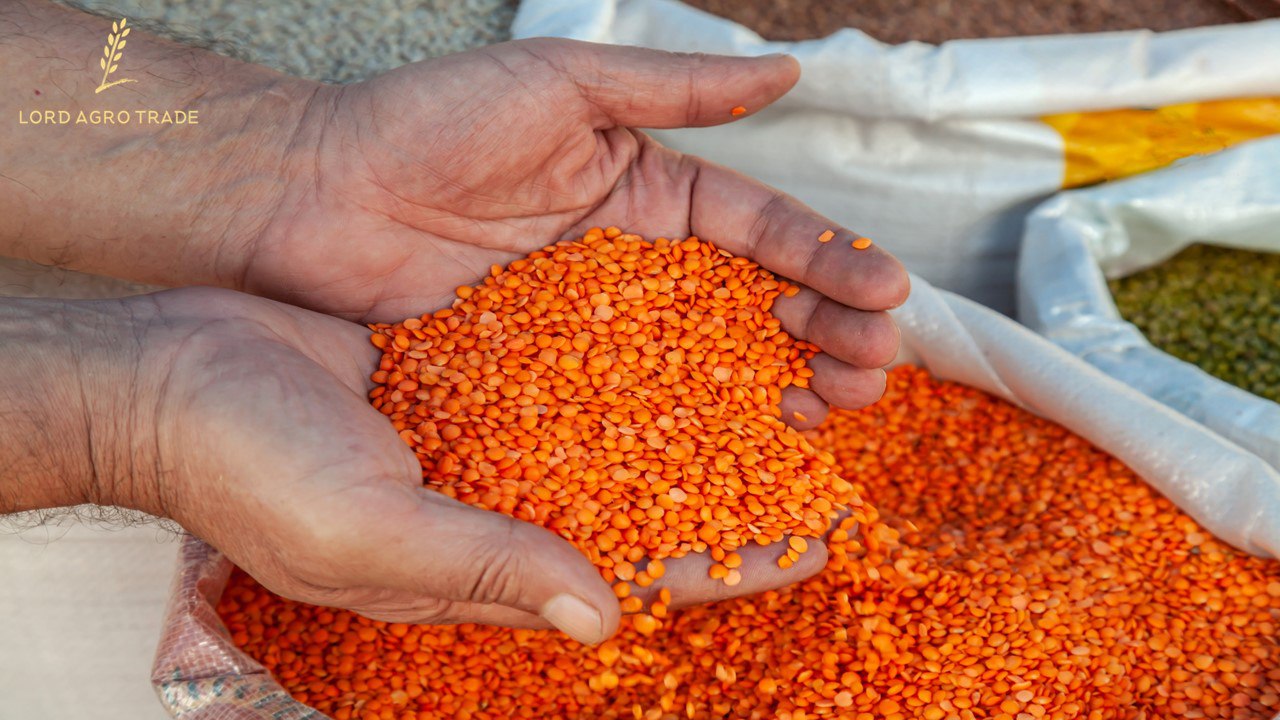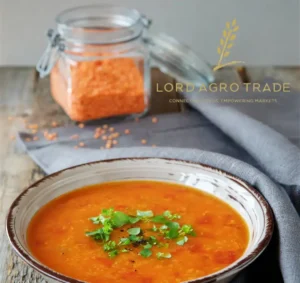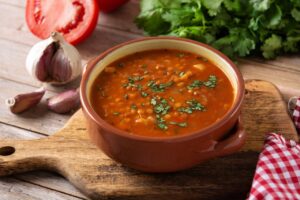Gulfood
17 To 21 FEB 2025 | DUBAI WORLD TRADE CENTRE
We’re excited to see you at Gulfood 2025!
Gulfood
17 To 21 FEB 2025 | DUBAI WORLD TRADE CENTRE
We’re excited to see you at Gulfood 2025!


What is dal called in English, and what is the difference between dal lentils and dhal?
Dal lentils is often called lentils in English, but it actually refers to the split versions of various lentils, peas, chickpeas, and kidney beans. When pulses are split in half, they are referred to as dal lentils.

In Indian cuisine, dal (also spelled dal, dahl, or dhal) refers to dried, split pulses like dal lentils, peas, and beans. These pulses do not need to be soaked before cooking. India is the largest producer of these pulses in the world.
Weight Loss: Dal is great for weight loss because it contains a mix of fiber and protein, which helps you feel full and satisfied. This can reduce the temptation to overeat. Low in Calories: Even though dal helps you feel full, it is low in calories. This makes it ideal for those looking to lose weight.
Dal is made from split legumes like lentils and chickpeas. When the skin of legumes is removed and their seeds are divided into two parts, it is called dal.
Dal and lentils are not exactly the same. Dal refers to split pulses (legumes), which include lentils, peas, and beans. Pulses are the dry, edible seeds of legume pods.
Urad dal, or black lentil, is highly nutritious. It is low in fat and calories, aids digestion, strengthens the nervous system, boosts energy, improves heart health, and strengthens bones due to its high protein and vitamin B3 content. Dal Makhani, made from black lentils, is often called the king of dal and is considered a top dish among foods.
Toor dal, also known as arhar dal lentils, is considered the most delicious dal that can be made regularly. It is commonly used in dishes like Sambhar, Gujarati Dal, and Tadke Wali Dal. This dal is rich in iron, folic acid, and magnesium, and it is also used to make the South Indian sweet dish Obbattu.
How much dal can I eat in a day, and which dal is best to eat daily?
According to the Indian food pyramid, you should eat at least 2 servings of pulses or legumes daily. The high fiber and protein content in dal lentils helps with weight loss, making it a good choice for heart patients and diabetics.
In Indian cuisine, the most commonly used dals for daily meals include toor dal (pigeon pea), moong dal (split green gram), masoor dal (red lentil), and chana dal (split chickpea). These dals are versatile and provide essential nutrients.

What is a basic and simple red lentil or red split lentil recipe?
Masoor dal, or red split lentil, is one of the most popular dals in the world, especially in India and the UAE.
Delicious masoor dal or red split lentil recipe
Making red lentils, or the split type (masoor dal), is easy and results in a tasty, healthy meal that everyone will enjoy. This dish is also vegan, so it’s a great choice if you or your loved ones follow a vegan diet. Lentil dal is very popular in India and has many fans. Its popularity extends beyond India to Middle Eastern countries, especially in the south like the UAE.
To make this delicious lentil dish, start by frying some onions until they turn golden. Then add chopped tomatoes, garlic, and fresh ginger, and cook until the tomatoes are soft. Next, add the red lentils along with water and spices such as cumin, coriander, turmeric, cinnamon, pepper, and salt, and let it cook until done. Your dal is now ready.

The difference between Indian and Arabic lentils lies in the spices used. Each region uses different spices based on local tastes and culture, so feel free to choose spices that you like to enhance the flavor.
Cooking Indian lentil dal is very simple. You can serve it with bread, but traditionally, it is usually served with rice. Preparing dal lentils takes about 5 minutes for the ingredients and 30 minutes to cook. In total, this dish will take about 35 minutes to make.
| Amount Per Cup of Masoor dal or Red Split lentil (192 grams) | ||
| Calories 687 | ||
| Factors | Grams | % Daily Value* |
| Total Fat | 4.2 g | 5% |
| Saturated fat | 0.73 g | 4% |
| Cholesterol | 0 mg | 0 % |
| Sodium | 13.4 mg | 1% |
| Potassium | 1282.6 mg | 27% |
| Total Carbohydrate | 121.2 g | 44% |
| Dietary fiber | 20.7 g | 74% |
| Sugar | – | – |
| Protein | 45.9 g | 92% |
| Vitamin C | 3.3 | 4% |
| Vitamin D | – | 0% |
| Iron | 14.2 g | 79% |
| Calcium | 92.2 g | 14% |
| Phosphorus | 564.5 mg | 45% |
Lord Agro Trade Co. is renowned as one of the premier lentil suppliers and exporters in Canada, providing a diverse range of high-quality pulses and grains to meet your needs.
© Copyright 2024 Lord agro trade